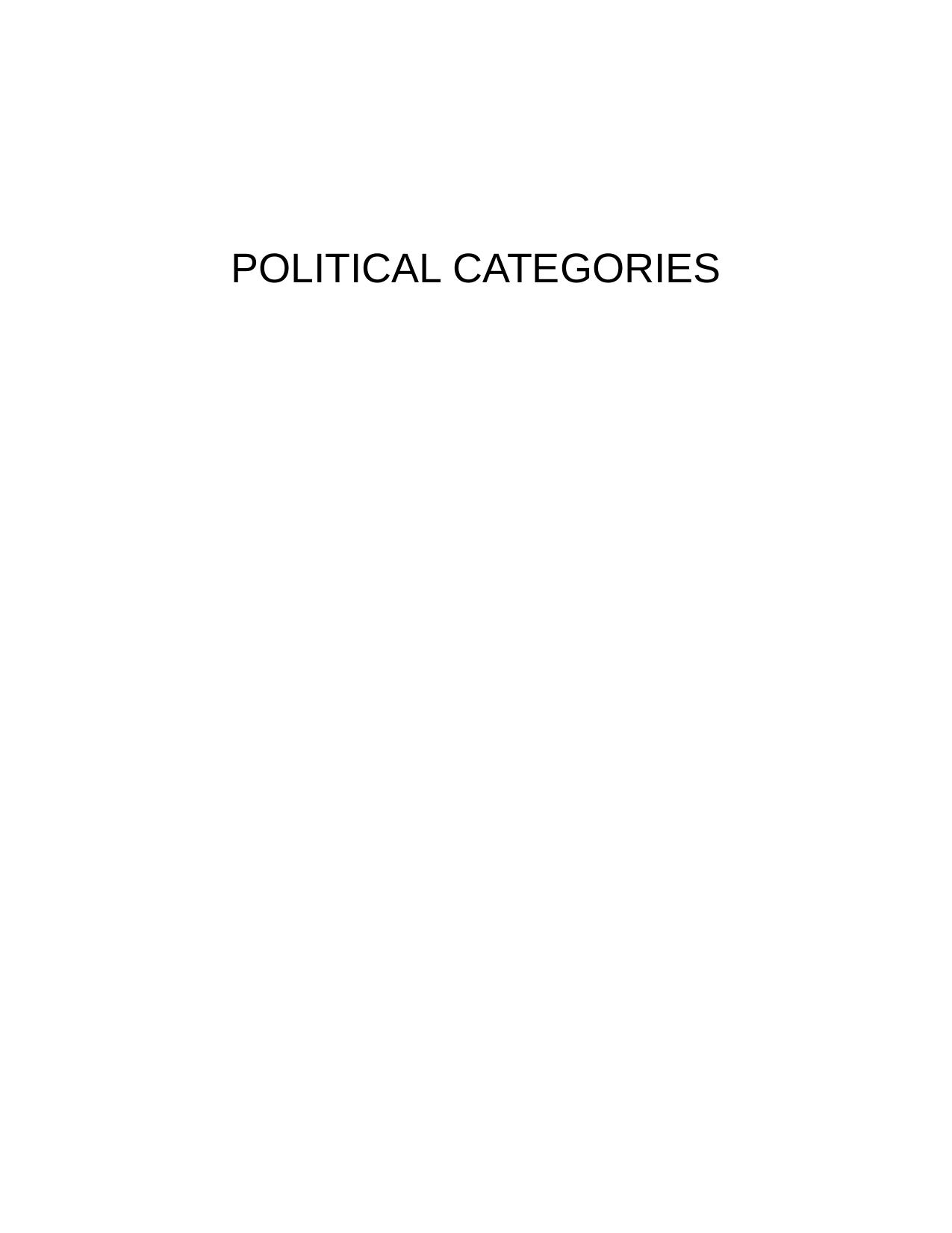Political Categories: Thinking Beyond Concepts by Michael Marder

Author:Michael Marder [Marder, Michael]
Language: eng
Format: epub, pdf
Tags: Philosophy, Political, Movements, Phenomenology, Political Science, History & Theory
ISBN: 9780231547987
Google: eWNbDwAAQBAJ
Publisher: ColumbiaUP
Published: 2019-03-12T21:53:11+00:00
âAFTERâ THE CATEGORIES: SCHEMATISM
Judgments are the austere logical and subjective instantiations of the categories; schemata insert the categories into the order of time, putting some flesh on the bare bones of pure understanding. For Kant, the mediations of schematism are unsurpassable, in that the categories and the transcendental aesthetics of experience (space and time) are two forms of the a priori that are not to be conflated. Heideggerâs thesis The meaning of being is time is incomprehensible from a Kantian perspective, where it would mean that the category of existence is a pure form of sensible intuition. At best, Heideggerâs predecessor will concede that âreality,â Realität, is âa concept, which in itself indicates a being (in time) [Begriff an sich selbst ein Sein (in der Zeit) anzeigt]â (CPR A143). As logical functions, then, judgments are categories stabilized in atemporal molds; as temporalized categories, schemata come adrift and are prepared to receive any object in light of âthe general conditions under which alone the category can be appliedâ (CPR A140). What are the general political conditions for applying the categories? How might schemata work in politics?
Taking up quantity, Kant notes that the âpure schema of magnitudeâ is ânumber, which is a representation that summarizes the successive addition of one (homogeneous) unit to anotherâ (CPR B182). In its unity, number is a plurality of homogenized units added to one another in a succession, that is to say, in a temporal pattern. We could transpose this definition onto a numeric succession of political regimes, classically ranging from one ruler through a few to many. We could also predictably claim that the scientific and philosophical invention of homogeneity and its implementation within a quantitative outlook are the forerunners of modern democratic constructions. The disadvantage of such claims is that they do not give enough credit to the political constitution of the categories. So, what if things were the other way around? What if the schema of magnitude (as Kant sees it, his monarchic leanings notwithstanding) were not just political but a priori democratic, because it counted and counted upon homogenous units in a uniform succession, out of which time itself is woven?
On the one hand, 1 + 1 + 1 ⦠= (a) a dynamic representation of number, (b) a chain of instants that make up time, and (c) electoral multiplicities in representative democracies. On the other hand, isolated from âbeforeâ and âafter,â extracted from a succession, sequestered from the order of time, oneâlet alone the Oneâis not a number: absolute monarchic rule does not sit comfortably with the âpure,â but essentially democratic, schema of magnitude. Democracy judges all kinds of politics starting from and coming back to itself: hence, the predominance of quantitative categories in the age of democratic hegemony and the surreptitiously democratic take on democracyâs own nuts and bolts, the numbers. None of this is strange, given that in the same paragraph Kant reopens the door to the empirical constitution of transcendentals, as well as to a cross-contamination of transcendental aesthetics
Download
Political Categories: Thinking Beyond Concepts by Michael Marder.pdf
This site does not store any files on its server. We only index and link to content provided by other sites. Please contact the content providers to delete copyright contents if any and email us, we'll remove relevant links or contents immediately.
| Deconstruction | Existentialism |
| Humanism | Phenomenology |
| Pragmatism | Rationalism |
| Structuralism | Transcendentalism |
| Utilitarianism |
The remains of the day by Kazuo Ishiguro(8961)
Tools of Titans by Timothy Ferriss(8357)
Giovanni's Room by James Baldwin(7313)
The Black Swan by Nassim Nicholas Taleb(7095)
Inner Engineering: A Yogi's Guide to Joy by Sadhguru(6780)
The Way of Zen by Alan W. Watts(6589)
Asking the Right Questions: A Guide to Critical Thinking by M. Neil Browne & Stuart M. Keeley(5747)
The Power of Now: A Guide to Spiritual Enlightenment by Eckhart Tolle(5740)
The Six Wives Of Henry VIII (WOMEN IN HISTORY) by Fraser Antonia(5492)
Astrophysics for People in a Hurry by Neil DeGrasse Tyson(5172)
Housekeeping by Marilynne Robinson(4429)
12 Rules for Life by Jordan B. Peterson(4298)
Double Down (Diary of a Wimpy Kid Book 11) by Jeff Kinney(4257)
The Ethical Slut by Janet W. Hardy(4235)
Skin in the Game by Nassim Nicholas Taleb(4229)
Ikigai by Héctor García & Francesc Miralles(4228)
The Art of Happiness by The Dalai Lama(4118)
Skin in the Game: Hidden Asymmetries in Daily Life by Nassim Nicholas Taleb(3983)
Walking by Henry David Thoreau(3946)
